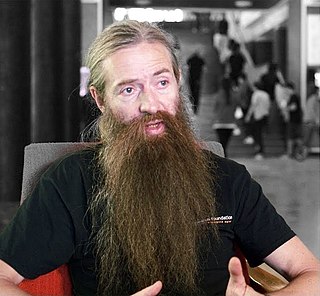A Quote by Ada Lovelace
The method of differences is, in fact, a method of additions; and as it includes within its means a larger number of results attainable by addition simply, than any other mathematical principle, it was very appropriately selected as the basis on which to construct an Adding Machine, so as to give to the powers of such a machine the widest possible range.
Related Quotes
The physicist, in his study of natural phenomena, has two methods of making progress: (1) the method of experiment and observation, and (2) the method of mathematical reasoning. The former is just the collection of selected data; the latter enables one to infer results about experiments that have not been performed. There is no logical reason why the second method should be possible at all, but one has found in practice that it does work and meets with reasonable success.
... regard this body as a machine which, having been made by the hand of God, is incomparably better ordered than any machine that can be devised by man, and contains in itself movements more wonderful than those in any machine. ... it is for all practical purposes impossible for a machine to have enough organs to make it act in all the contingencies of life in the way in which our reason makes us act.
It seems perfectly clear that Economy, if it is to be a science at all, must be a mathematical science. There exists much prejudice against attempts to introduce the methods and language of mathematics into any branch of the moral sciences. Most persons appear to hold that the physical sciences form the proper sphere of mathematical method, and that the moral sciences demand some other method-I know not what.
Agnosticism, in fact, is not a creed, but a method, the essence of which lies in the rigorous application of a single principle. ... Positively the principle may be expressed: In matters of the intellect, follow your reason as far as it will take you, without regard to any other consideration. And negatively: In matters of the intellect, do not pretend that conclusions are certain which are not demonstrated or demonstrable.
Man is a machine which reacts blindly to external forces and, this being so, he has no will, and very little control of himself, if any at all. What we have to study, therefore, is not psychology-for that applies only to a developed man-but mechanics. Man is not only a machine but a machine which works very much below the standard it would be capable of maintaining if it were working properly.
Science is nothing more than a method of inquiry. The method says an assertion is valid - and will be universally accepted - only if it can be reproduced by others, and thereby independently verified. The impersonal rigor of the method has produced enormously powerful results for 400 years. The scientific method is utterly apolitical. A truth in science is verifiable whether you are black or white, male or female, old or young. It’s verifiable whether you know the experimenter, or whether you don’t.
I think you have to find how the machine can work for you. That's what I mean by "attaching yourself to the machine," 'cause the machine is going to be there, and you can rage against the machine, which is cool, but there's ways that you can benefit off the machine if you're savvy enough and you're sharp enough, smart enough. We all got to live and eat.
Science, at its core, is simply a method of practical logic that tests hypotheses against experience. Scientism, by contrast, is the worldview and value system that insists that the questions the scientific method can answer are the most important questions human beings can ask, and that the picture of the world yielded by science is a better approximation to reality than any other.







































